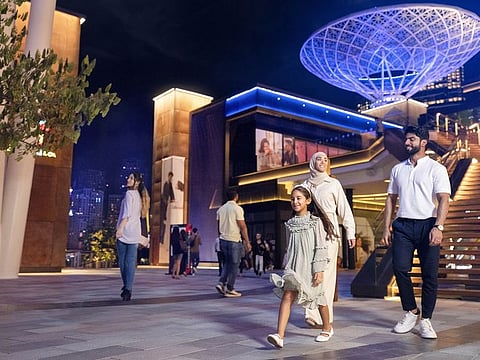UAE: New COVID-19 rules to follow from September 28
You still need to wear face masks in three public places

Dubai: Wearing face masks is now optional in many public places and people will only need to take a PCR test once every month to maintain the Green Pass status on the Al Hosn app.
These relaxations and some more were announced by the UAE’s National Emergency Crisis and Disaster Management Authority (NCEMA) on Monday, September 26, and come into effect from tomorrow – September 28, 2022.
Commenting on the relaxations that were announced, NCEMA tweeted: “The UAE has now reached a stable phase due to your commitment. We are thankful for your awareness and cooperation, and we thank our frontline workers for their devotion and efforts.”
However, the authority also stated that it would continue “monitoring the situation in full readiness to update procedures accordingly.”
“We stress that despite the current stable situation, the pandemic is still ongoing, and the next phase will require community responsibility,” the authority tweeted.
Here is a list of all the relaxations to COVID-19 protocols that have been announced:
The Green Pass System
• While earlier individuals who were fully vaccinated needed to take a Polymerase Chain Reaction (PCR) test every two weeks to maintain the ‘Green’ status on the Al Hosn app, they now need to take a test once every month. This means that a PCR test will turn your status on Al Hosn as ‘green’ for one month, after which you would need to take another PCR test.
This one-month validity is also applicable for individuals who are exempt from taking the vaccine.
• If you are not vaccinated, you would need to take a PCR every seven days to have the Green Pass active on Al Hosn.
• Having a Green Pass on the Al Hosn app is a mandatory pre-requisite for employees to enter their workplaces in federal government departments.
Face masks
• It is mandatory to wear face masks in the following places:
- medical facilities
- Places of worship
- Public transportation
• All food service providers, those who are infected with COVID-19 and suspected COVID-19 cases must also wear face masks.
• Wearing face masks is optional in all other open and closed facilities and spaces.
• Wearing face masks is recommended for senior citizens and residents and people with chronic diseases.
Mosques and other places of worship
• Social distancing is no longer required in places of worship.
• Wearing face masks is mandatory to protect the health of vulnerable community members.
• The use of personal prayer mats is still required.
The aviation sector
• NCEMA asked airlines to adopt precautionary measures in accordance with the national aviation protocol.
• Airlines are allowed to decide if wearing face masks will be mandatory or optional.
• The requirements for pre-departure testing for vaccinated and unvaccinated people will be determined at the request of travel destinations.
• As for those coming to the country, the current protocol is still valid for vaccinated and unvaccinated people.
The tourism, economic and events sector
• The Green Pass will apply for entering hotels, parks and recreational spaces, and the economic sector, such as shopping centres, in addition to various events.
• Event organisers can decide on the precautionary measures to be applied, according to the situation.
The education sector
• Precautionary measures will be implemented in line with the national education protocol.
• Wearing face masks in open and closed spaces is now optional.
• The Green Pass system will be applied as previously announced.
Close contacts
• If you are a close contact of someone who has tested positive for COVID-19, taking a PCR test should be sufficient in case symptoms appear.
• As for vulnerable categories, NCEMA urged them to undergo a PCR test and monitor their condition for seven days.
Self-Isolation
• For people who have tested positive for COVID-19, the isolation period has been reduced to five days, whether at home or at an institution.
• Employers will be responsible for institutional isolation.
Sign up for the Daily Briefing
Get the latest news and updates straight to your inbox


